Paralegal Studies Program in California Approved by the American Bar Association
As one of only 29 Paralegal programs in California approved by the American Bar Association (ABA), our 15-month Paralegal program at Fremont University will prepare you for a variety of stable and rewarding careers in the legal field. If you would like to learn more about this exciting career, click on the box below to learn more.
Associate
of
arts
degree
Paralegal Studies
60 Weeks
90 Quarter Units
Program
Highlights
ABA-Approved Paralegal Program in California
Fremont University’s paralegal program is one of only 29 Paralegal programs approved by the American Bar Association (ABA) in California.
Explore Various Types Of Law
Learn about civil procedure, criminal law, family law, and employment law to help you narrow down your field of interest
Expand Your Career Opportunities
Work as a Paralegal, Law Clerk, or Litigation Support Analyst
Over 80,000 new job openings between 2014 and 2024 *
Occupational Outlook Handbook, 2014)

Launch a Stable and Rewarding Career with Fremont University’s Paralegal Studies Program
Do you have a keen interest in law, exceptional research skills, and a meticulous attention to detail? Are you objective, able to communicate clearly and precisely, and thrive under pressure? If you’re wondering how to become a paralegal in Southern California but don’t know where to start, Fremont University’s Paralegal Studies program is the perfect choice for you.
Our paralegal course is one of the few in California approved by the American Bar Association (ABA), ensuring you receive top-tier education and training. Located in Cerritos, California, our College of Legal Studies offers an ABA-approved paralegal program designed to prepare you for an exciting and fulfilling career in law.
Why Choose Fremont University’s Paralegal Studies Program?
- ABA Approval: Our program is one of the few in Southern California with ABA approval, a mark of excellence and quality.
- Comprehensive Education: Unlike paralegal certificate programs, our curriculum leads to a degree, providing you with in-depth knowledge and skills.
- Fast-Paced Learning: Complete your paralegal degree in just 15 months so you can quickly transition into your new career.
- High Job Satisfaction: Our graduates are professional, knowledgeable, and articulate, often securing positions with well-known companies in Southern California and beyond.
- Ideal Location: Convenient paralegal college program for residents of both Los Angeles County and Orange County.
Whether you’re seeking a career change or just starting out, a paralegal career offers stability, satisfaction, and opportunities for advancement. To learn more about our paralegal education program, simply fill out the form on this page and take the first step toward a rewarding future in the field of law.
*A paralegal degree is not a license to practice law.
Our paralegal studies program is…
- Real World Learning
- Analytical
- Intense
- Structured
- Rewarding
Are Paralegals in Demand?
According to the Bureau of Labor Statistics, there will be over 80,000 Paralegal job openings between 2014 and 2024. * Source:
Bureau of Labor Statistics – Occupational Outlook Handbook, 2014
Important Qualities of a Paralegal
COMMUNICATION SKILLS
Paralegals must be able to document and present their research and related information to their supervising attorney.
COMPUTER SKILLS
Paralegals need to be familiar with using computers for legal research and litigation support. They also use computer programs for organizing and maintaining important documents.
INTERPERSONAL SKILLS
Paralegals spend most of their time working with clients and other professionals, and must be able to develop good relationships. They must make clients feel comfortable sharing personal information related to their cases.
ORGANIZATIONAL SKILLS
Paralegals may be responsible for many cases at one time. They must adapt quickly to changing deadlines.
RESEARCH SKILLS
Paralegals need good research and investigative skills to conduct legal research.
Expedite Your Journey in Paralegal Studies Today
Schedule a free live career coaching session and learn how Fremont University’s 15-month Associate Degree in Paralegal Studies program fits your legal journey and career.
What Does A Paralegal Do?
Conduct research on relevant law, regulations, and legal articles
Investigate the facts of a case
Draft correspondence and legal documents, such as contracts and mortgages
Gather evidence and legal documents for attorney review and case preparation
Write reports to help lawyers prepare for trials
Obtain affidavits and other formal statements that may be used as evidence in court
Where Do Paralegals Work?
- √ Law firms
- √ Corporate legal departments
- √ Medical companies and hospitals
- √ Real estate and title insurance companies
- √ Federal, state and local government agencies
- √ Non-governmental organizations
* Paralegals may not provide legal services directly to the public, except as permitted by law
Fremont Difference
Our ABA-approved Paralegal program is designed to provide you with a thorough and comprehensive understanding of both the background and theory of the modern legal system while simultaneously putting your knowledge into practice while attending paralegal school. At Fremont University, our accelerated program will allow you to earn an Associate of Arts degree in Paralegal Studies in just a little over one year. Start training in a rewarding new career and become a paralegal. To learn how you can earn your paralegal degree, contact us for more information today.
- Paralegal Studies Associate of Arts Degree
Paralegal Studies encompasses many facets of the law and includes, but is not limited to, property, employment law, family law, torts, civil procedures, contracts, and legal research and writing. This ABA approved Paralegal Studies Associate of Arts Degree program provides training in conducting research on relevant laws, regulations, and legal articles; drafting correspondence and legal documents; gathering evidence and legal documents for attorney review and case preparation; report writing; and processes for obtaining affidavits and other formal statements that may be used as evidence in court. The expected completion time for this program is 15 months.
- Vocational Objective
Graduates of the Paralegal Studies program are eligible for entry-level positions in local, state, and federal government agencies and departments, as well as law firms, legal aid services, finance and insurance companies. Specific jobs with these employers include corporate paralegal, litigation paralegal, family law paralegal, law clerk, and litigation support analyst.(Note: Paralegals may not provide legal services directly to the public except as permitted by law.) Learning Outcomes Graduates of the program will be able to: 1. Demonstrate proficiency in legal writing skills. 2. Identify and interpret the fundamental concepts of substantive and procedural law. 3. Apply oral and written communication skills appropriate to the legal profession. 4. Analyze and apply the law to the facts. 5. Recognize ethical dilemmas and identify rules and laws governing the conduct of paralegals. 6. Employ software applications and technology commonly used in the legal environment. 7. Demonstrate proficiency in research skills utilized by paralegals
- Graduation Requirements To earn an Associate of Arts Degree in Paralegal Studies
Students must: • Achieve a minimum cumulative GPA of 2.00, with no grade lower than a 1.00 for any course that applies to the program. • Complete a minimum of 90 quarter credit hours, comprised of a minimum of 60 quarter credit hours in core classes and a minimum of 30 quarter credit hours in general education courses, including GE120, GE129, GE133 and GE139 (or equivalent). • Legal Specialty Requirement: Students must complete a minimum of 60 quarter units in PA courses. Students must fulfill a minimum 15 quarter credits of legal specialty courses at Fremont University. • Meet their financial obligations. Students who fail to meet these obligations may have their diploma or degree withheld. Fremont University does not require a cumulative final test or examination for the completion of this program.
- Transfer of Credit Policies for Legal Specialty Courses
Students who have completed equivalent legal specialty courses from an ABA-approved program, matching at least 80% of course description the current course catalog, may obtain transfer credit to fulfill the program requirements incomparable legal specialty courses subject to the minimum residency requirements, provided that the student provides official transcripts verifying the successful completion of this coursework to the Registrar prior to commencing any legal specialty courses at Fremont University. Courses will be eligible for transfer only if they were completed with a grade of C- or higher and within the past 3 years. Students must fulfill a minimum 15 quarter credits of legal specialty courses at Fremont University. Credit for Experiential Learning Fremont University does not offer credit for life experience or prior experiential learning.
ABA-approved Paralegal Studies Program
Fremont University is one of only 29 ABA-approved Paralegal schools in California.
Accelerated Degree Program
Complete Fremont University’s Paralegal Studies program in just 15 months.
Mentoring From Expert Instructors
Receive expert help from our staff of highly-trained instructors, whose industry skills and work experience enhance the students’ learning experience.
Flexible Scheduling
Complete your program with day or evening courses on campus.
Student Collaboration
Work with your fellow students to learn and grow together.
Career Services
Receive expert career advice and assistance to help you find a job in your field.
Real-world Legal Training
Students conduct legal research, perform real-world problem solving, and participate as a member of an active legal team.
Small Class Sizes
Learn in a small class setting with more one-on-one instructor interaction.
Peer Tutoring
Get help from your fellow students at no cost.
Essential Courses
- √ Introduction to Law and Ethics
- √ Civil Procedure
- √ Legal Research and Writing
- √ Criminal Law and Procedure
- √ Torts
- √ Family Law
- √ Advanced Legal Research and Writing
- √ Legal Practice Technology
- √ Real Property Law
- √ Employment Law
- √ Contracts
- √ Immigration Law
Companies Who Have Hired Our Paralegal Alumni
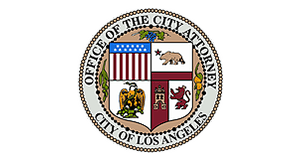
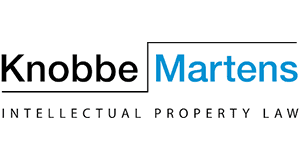
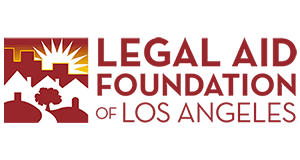

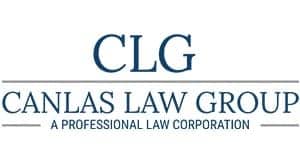
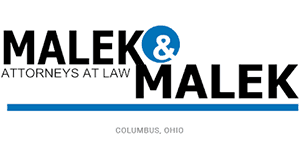
What Are the Types of Paralegal Careers?
Before you decide to enroll in a paralegal degree and begin learning more about law, you might be wondering what a paralegal does as well as careers for paralegal degree majors. Paralegals essentially help attorneys. This might include preparing for trials, hearings and administrative meetings. While a paralegal may not provide legal advice, they can be an important part of a legal team. Not only do paralegals work for law firms, but they may also provide assistance to legal and finance departments in large companies as well as in governmental and nonprofit organizations. So, there is tremendous scope for paralegals to work as part of different types of companies and organizations who might have a need for different paralegal positions. Business paralegals: This is an area of law that some paralegal graduates might decide to pursue after finishing their legal studies training. These are paralegals that help lawyers within the business law realm. Among other things, corporate paralegals might work under the supervision of an attorney to help make sure companies have the necessary paperwork completed. A paralegal who specializes in business law might benefit by having a thorough understanding and knowledge of banking, finance, contract law, employment laws, partnerships, mergers, acquisitions, and investments. Criminal law paralegal: A paralegal who works in a law firm or office that assists an attorney with matters related to criminal cases may work to support the work of criminal defense attorneys, prosecutors or public defenders. Duties in such roles might include conducting research, interviewing witnesses and other parties involved, corresponding with clients, filing paperwork, etc. Bankruptcy: A paralegal who works in a bankruptcy law firm may assist an attorney by completing a number of duties. Bankruptcy can be a lengthy process that involves a number of steps and actions including but not limited to scheduling and attending meetings between attorneys, filing paperwork and drafting applications and schedules. It may also involve interviewing different parties involved and preparing for key hearings. Immigration: As an immigration paralegal, you will work for immigration attorneys who specifically try to help clients obtain immigration status The immigration process can be complicated. Immigration paralegals may work for law firms, corporations or even for governmental agencies and nonprofits. Work may involve everything from filing paperwork and writing reports to assisting lawyers during trials. Personal injury: A personal injury paralegal will help personal injury lawyers. A majority of personal injury cases are settled out of court. This means paralegals may assist personal injury lawyers in collecting and compiling evidence that may help bolster the plaintiff’s case against the defendant. This work may include interviewing witnesses, doctors, conducting legal research, collecting relevant records and corresponding with clients. Litigation paralegal: Litigation refers to the process of taking legal action on civil or criminal issues. There are a number of subspecialties within the area of litigation. As a litigation paralegal, you may be performing a number of different job duties including duties such as assisting with trial preparation, interviewing witnesses and overseeing discovery. You may even spend time in the courtroom assisting attorneys. If this is your cup of tea, serving as a litigation paralegal may be extremely satisfying.
Additional Paralegal Degree Information
Paralegal Studies encompasses many facets of the law and includes, but is not limited to, property, employment law, family law, torts, civil procedures, contracts, and legal research and writing. This ABAapproved Paralegal Studies Associate of Arts Degree program provides training in conducting research on relevant laws, regulations, and legal articles; drafting correspondence and legal documents; gathering evidence and legal documents for attorney review and case preparation; report writing; and processes for obtaining affidavits and other formal statements that may be used as evidence in court. The expected completion time for this program is 15 months. If you’re ready to get more information about our school and paralegal studies program simply fill out the form on this page to learn more. Your first step in getting more information is that easy. Note: Paralegals may not provide legal services directly to the public except as permitted by law
Associate of Arts Degree in
Paralegal Studies
PARALEGAL STUDIES COURSES
This course provides an introductory survey of American law and jurisprudence, the federal and state judicial systems, and various substantive legal fields. Additional topics of coverage will include client intake interviews, the doctrine of confidentiality and ethical concerns, and the inner workings of a law firm. This course will also provide a review of the professional rules of conduct, and common and specialty areas of practice, in both the private, public, and non-profit sectors.
Presents a foundational overview of civil procedure while discussing the litigation process and evaluating topics including summary judgments, discovery, interrogatories, depositions, and various components of trial preparation. Introduces the student to the concepts and mechanics of litigation and how to navigate a civil lawsuit from inception through the appeal process. This course will also cover pertinent topics such as sources of American law, informal fact gathering and investigation, case evaluation and strategy, and parties and jurisdiction. Students will be introduced to pleadings, including analysis and practical exercises in motions, including complaints, answers and cross-complaints.
This course introduces students to the skills necessary to analyze the facts of a case and conduct the requisite legal research, including searching for case and statutory law, and analyzing and presenting those primary sources once located. This course will also introduce the students to the federal and state court systems, and legal authorities such as practice guides, digests and annotated law reports. The students will receive instruction in research skills so the students can produce comprehensive written memorandums, including inter-office memorandums, legal research memorandums and case briefs. Students will also receive training in reference to secondary sources such as legal encyclopedias, periodicals, restatements and treatises
This course presents a foundational overview of criminal law and procedure, and introduces the student to the penal code, crimes and the criminal justice system. The student will learn to differentiate between criminal and civil standards of proof, and how they’re applied. This course will illustrate the distinction between criminal law and criminal procedure, principals of criminal jurisdiction, as well as constitutional limits related to criminal procedure. This course provides a review of criminal law and procedure, and will cover pertinent topics, including types of criminal offenses, defenses to crimes, intent and the result of not meeting the applicable standard of proof. The students will also discuss the components of criminal procedure and how it affects the investigative stages of a case, including the pre-trial and charging stages.
This course will cover the basic principles of civil liability in tort, including a comprehensive review of intentional torts and the elements of negligence. The student will learn how to effectively apply those elements to establish a prima facie case. This course will present the defenses that a defendant may raise, and the underlying principals and policies justifying and limiting liability. This course will cover the topic of negligence, including the primary defenses to negligence and the effect that they may have on a tort claim. This course will also introduce the student to the concepts of strict and products liability, malpractice, fraud, misrepresentation, and business torts.
This course provides an introduction of the legal theories and research materials related to the field of family law and associated matters such as dissolution, legal separation, OSC motions to establish and modify child custody, visitation, child support, spousal support, and the notice and enforcement of those orders. In this course the students will be introduced to the family code, and how to access and analyze pertinent components of the code. The course will review the principals of community and separate property, as well as the associated property rights and obligations that arise in a marital or domestic partnership. The students will cover how to access judicial council forms, and techniques and practice in preparing those forms which are commonly required in typical family law proceedings.
This course introduces the student to advanced legal research and writing, which builds on skills formulated in the introductory courses. This course focuses on legal correspondence, opinion letters, keeping the client advised, the need for clarity and maintaining client files. The student will learn how to gather pertinent and tangible facts, how they relate to hearsay, and evidentiary rules that may have an effect in reference to the admissibility of facts. The student will also learn how to draft a persuasive memorandum in accordance with applicable rules. This course will also cover the drafting legal motions, weaving factual declarations into a legal argument, and preparing captions, and points and authorities. The students will receive enhanced training on notice requirements, filing, e-filing, and proof of service requirements. In addition the student will receive enhanced training in computerized legal research, and how to organize the material they find in a concise and professional manner.
This course introduces the student to various types of technology that are commonly used in the legal field. The students will receive an overview of computers, word processing, PDF file creation and document assembly. This course will also introduce the student to databases and case management software, as well as spreadsheet, legal timekeeping and billing software. The students will receive instruction on how utilize the internet and computer-assisted legal research with legal search engines such as Westlaw. In addition, the students will receive training in litigation support software and electronic discovery.
This class provides an overview of real property law including estates in real property, various forms and classifications of ownership, and marketability of title. Additional topics include the rights and duties of landowners, property disputes between neighbors, involuntary liens, and foreclosures. The students will receive instruction in topics including landlord/tenant law, deeds and the transfer of real estate interests, as well as mortgages, title searches and title insurance. This course provides instruction on developing practical skills, including how to research deeds and title, decipher mortgage clauses, and the ethical issues facing legal practitioners in the field.
This course surveys employment law and covers the employer/employee relationship, at will status, employee testing, whistle blowing lawsuits, wage and hour concerns, and benefits. This course will discuss alternative dispute resolution, the civil rights act and affirmative action programs. The students will review other topics in employment law including the FMLA, OSHA, collective bargaining agreements and applicable labor codes and regulations. The class will provide the student with instruction concerning topics including race, age, sexual, disability, gender and wage/hour discrimination, as well as workers’ compensation laws.
This course provides a general introduction to the fundamentals of contract law and addresses the necessary formalities to create binding contractual obligations, including the requirements of mutual assent (offer, acceptance), consideration and the statute of frauds. This course will also provide instruction covering capacity, legality and the effect they can have in relation to the validity of a contract, as well as specific conditions that may be included in a contract. The students will cover topics including breach of contract and the associated remedies that may apply. In addition, the student will be introduced to the Uniform Commercial Code and third party contracts, as well as how to draft a contract.
This course offers a thorough, accessible, and practical approach to understanding and putting to use U.S. laws and regulations to help protect refugees, bring needed workers to the U.S, and reunite families. Attuned to the sensitivity and responsibility necessary to ensuring just results in high stakes immigration cases, the authors provide readers with in-depth, information and freely offer their knowledge and insights into the complex legal issues faced by immigration clients, while proposing strategies for the professionals seeking to help them.
The College of Legal Studies offers an ABA-approved Associate degree in Paralegal Studies that can be completed in as little as 15 months. This program offers a great opportunity to train to become a paralegal and start your career in the field of law. Good paralegals are widely depended on and play an important role in the day-to-day activities of legal teams and lawyers. As responsibilities of paralegals continue to grow, so do opportunities in this important field. And because of the important role paralegals play throughout legal proceedings, it’s highly important to choose the right school for your education.
Each course in our ABA-approved Paralegal program, our expert faculty will provide you with a thorough and comprehensive understanding of both the background and theory of the modern legal system while simultaneously putting your knowledge into practice. You will learn communication, computer, organizational, and research skills specific to the paralegal field.
Through our Real World Learning model, you will conduct research on relevant law, regulations, and legal articles, investigate the facts of cases, draft correspondence and legal documents, gather evidence and write reports for attorney review, and learn how to obtain affidavits and other formal statements that may be used as evidence in court. In just over a year, you will be able to join our paralegal graduates as colleagues in law firms, corporate legal departments, medical companies, hospitals, insurance companies, and the government.
Discover how the Fremont University of Legal Studies can help you become an important part of a legal team today!
Learn More
CAREERS OPTIONS FOR GRADUATES
As a Corporate Paralegal, your job is to ensure that all financial transactions within a corporation are handled properly within the law. Directed by attorneys, the corporate paralegal might draft merger and acquisition documents, prepare paperwork for pleadings, appeals, briefs, and closings, and research legal requirements set forth by local, state, and federal regulations regarding trade, regulations, governance, and employee rights.
If databases are your thing, consider a career as a Litigation Support Analyst or Litigation Support Specialist. As an analyst you will build, maintain, and troubleshoot databases for large, complex litigations in which the documents and data are far too vast to organize and analyze manually. You work closely with the case team to ensure they have the documents they need.
As a family law paralegal, you will assist attorneys in legal matters pertaining to child custody, divorce, tax and finances, adoption, social services, and other family-related legal matters. You might conduct interviews with parties involved in domestic disputes, divorces, or child custody, prepare evidence and documents for hearings and trials in family court, and research and confirm collected information for cases. Divorce cases are the primary focus in this field.
As an immigration paralegal, the skills you learn at Fremont will be used for highly-specialized services pertaining to individuals who seek temporary or permanent legal status in the United States. This might include determining whether clients requesting asylum are eligible for refugee status or helping clients who seek temporary residence show that they will not violate their visas. You will draft and facilitate applications, petitions, letters, affidavits, the translation of foreign documents, and the evaluation of equivalency of foreign degrees.
As a law clerk, you will offer support to lawyers and judges in a courtroom setting. Some of your duties will include assisting with trials, hearings, and bail motions, providing basic administrative support, researching, preparing, analyzing, and verifying legal documents, and acting as a bailiff or court clerk during hearings.
*Paralegals may not provide legal service directly to the public, except as permitted by law.


